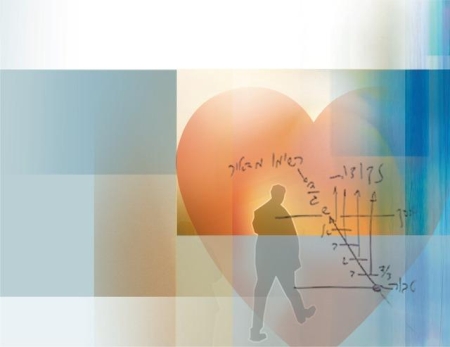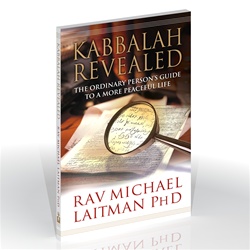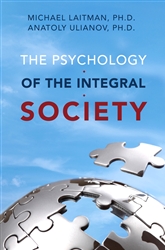
Kabbalah made its “debut” about 5,000 years ago in Mesopotamia, an ancient country in today’s Iraq. Mesopotamia was not only the birthplace of Kabbalah, but of all ancient teachings and mysticism. In those days, people believed in many different teachings, often following more than one teaching at a time. Astrology, fortune-telling, numerology, magic, witchcraft, spells, evil eye—all those and more were developed and thrived in Mesopotamia, the cultural center of the ancient world.
As long as people were happy with their beliefs, they felt no need for change. People wanted to know that their lives would be safe, and what they needed to do to make them enjoyable. They were not asking about the origin of life, or most important, who or what had created the rules of life.
At first, this may seem like a slight difference. But actually, the difference between asking about life, and asking about the rules that shape life, is like the difference between learning how to drive a car and learning how to make one. It’s a totally different level of knowledge.
The Engine Of Change
Desires don’t just pop out of the blue. They form unconsciously within us and surface only when they become something definable, such as, “I want a pizza.” Before that, desires are either not felt, or at most, felt as general restlessness. We’ve all experienced that sense of wanting something but not quite knowing what it is. Well, it is a desire that has not yet ripened.
Plato once said, “Necessity is the mother of invention,” and he was right. Similarly, Kabbalah teaches us that the only way we can learn anything is by first wanting to learn it. It’s a very simple formula: when we want something, we do what it takes to get it. We make the time, muster the energy, and develop the necessary skills. It turns out that the engine of change is desire.
The way our desires evolve both defines and designs the entire history of humanity. As humankind’s desires developed, they urged people to study their environment so they could fulfill their wishes. Unlike minerals, plants, and animals, people constantly evolve. For every generation, and for each person, desires grow stronger and stronger.
Taking The Driver’s Seat
This engine of change—desire—is made of five levels, zero through four. Kabbalists refer to this engine as “a will to receive pleasure,” or simply, “the will to receive.” When Kabbalah first appeared, some 5,000 years ago, the will to receive was at level zero. Today, as you might have guessed, we are at level four—the most intense level.
But in the early days when the will to receive was at level zero, desires were not strong enough to separate us from Nature and from each other. In those days, this oneness with Nature, which today many of us pay good money to re-learn in meditation classes (and let’s face it, not always successfully) was the natural way of life. People didn’t know any other way. They didn’t even know that they could be separated from Nature, nor did they want to be.
In fact, in those days, humanity’s communication with Nature and with each other flowed so seamlessly, words were not even necessary; instead, people communicated by thought, much like telepathy. It was a time of unity, and the whole of humanity was like a single nation.
But while still in Mesopotamia, a change occurred: people’s desires started to grow and they became more egoistic. People began to want to change Nature and use it for themselves. Instead of wanting to adapt themselves to Nature, they began wanting to change Nature to fit their needs. They grew detached from Nature, separated and alienated from it and from each other. Today, many, many centuries later, we are discovering that this was not a good idea. It simply doesn’t work.
Naturally, as people began to place themselves in opposition to their environment and their societies, they no longer related to others as kin and to Nature as home. Hatred replaced love, and people grew apart and became detached from one another.
In consequence, the single nation of the ancient world was divided. It first split into two groups that drifted to the east and to the west. The two groups continued to divide and splinter, eventually forming the multitude of nations we have today.
One of the most obvious symptoms of the division, which the Bible describes as “The Fall of the Tower of Babel,” was the creation of different languages. These different languages disconnected people from each other and created confusion and malfunction. The Hebrew word for confusion is Bilbul, and to mark the confusion, the capital of Mesopotamia received the name, Babel (Babylon).
Ever since that split—when our desires grew from level zero to level one—we have been confronting Nature. Instead of correcting the ever-growing egoism to remain as one with Nature, that is, with the Creator, we have built a mechanical, technological shield to protect us from it. The initial reason we developed science and technology was to secure our shielded existence away from Nature’s elements. It turns out, however, that whether we are aware of it or not, we are actually trying to control the Creator and take over the driver’s seat.
The above text was taken from the book Kabbalah Revealed: A Guide To A More Peaceful Life by Dr. Michael Laitman with foreword by Prof. Ervin Laszlo. Also available as eBook (PDF, Kindle & ePub formats), and for free PDF download.



